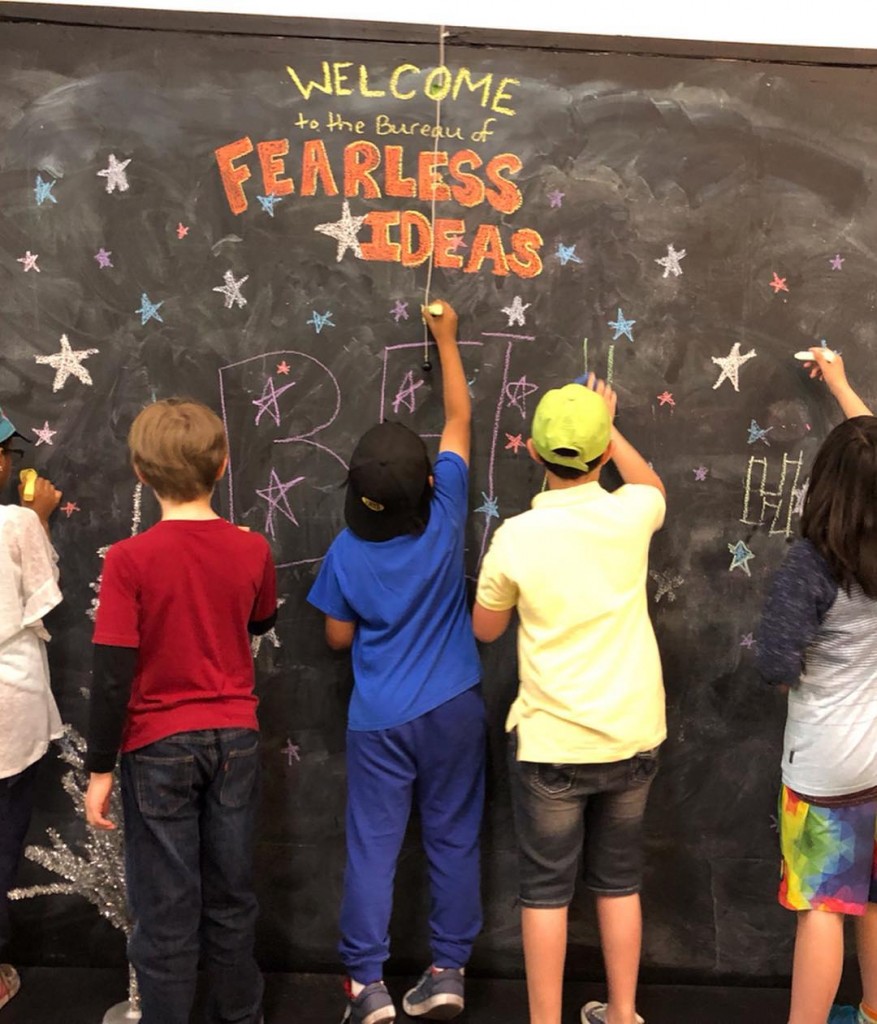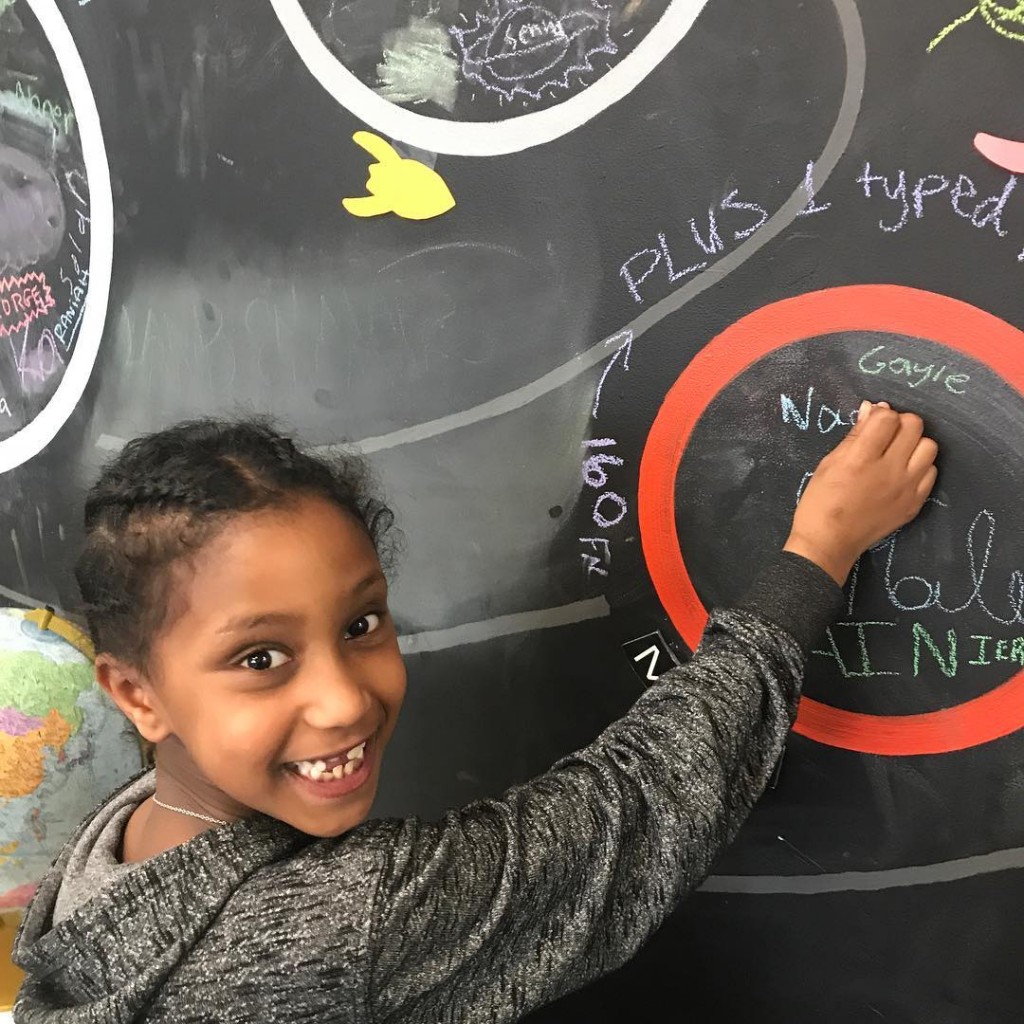School has let out, and for youth attending the Bureau of Fearless Ideas (BFI) in Seattle, they enter their afterschool program in style: teleporting. A nonprofit writing and communication center, BFI draws youth from all over the city with an office in the Greenwood neighborhood and a more recently opened space at Yesler Terrace. The Greenwood space is co-located with the Greenwood Space Travel Supply Co., a store selling the “finest space travel supplies” including a variety of games, and other fun materials whose sales support BFI’s services.
As youth arrive at BFI’s Greenwood space, they walk through the store and enter their creative writing space through a makeshift teleporter. Throughout their program the youth travel from planet to planet as they develop their writing pieces leading to a publishing party at the end of the year.


BFI’s Greenwood tutoring program serves approximately 50 elementary through middle school-aged youth, in addition to a variety of other writing workshops and programs impacting in total 1,800 youth per year. BFI offers all their programming at no charge to families, and because of their unique focus, draws youth from all over the city. The program is also unique in its incredible retention rate as students often stay in the program from elementary through high school with the older youth serving as informal mentors to the younger kids.
In the fall of 2017, BFI joined the Expanded Learning Opportunities Quality Initiative engaging in an intensive continuous quality improvement process with a focus on social-emotional learning. BFI’s Executive Director at the time recognized the importance of measuring program quality and while not familiar with the entire process, liked the idea of having these quality benchmarks to guide their staff and programmatic decisions. BFI’s Program Manager Nat Neville had been a part of the Youth Program Quality Initiative at past afterschool programs where they worked. Having a staff member with familiarity around the process also helped onboard BFI’s involvement.
The Social-Emotional Learning Program Quality Assessment (SELPQA) utilized as a part of this initiative was launched in 2017 with an intentional focus on supporting programs in creating environments that foster young people’s SEL skills and knowledge. BFI already excelled in this area, but the intentional focus and time set aside to reflect on and be mindful about SEL practices in their programming have only strengthened the staff’s relationships with each other and the youth in the program.
We also integrated mindful meditation into our community meetings, and make sure that this shared space allows for every student in our program to be seen and heard throughout the day.
Faith Eakin, Lead Program Manager
“We created a mindfulness station last year in response to the SELPQA process. This special part of our space has essential oils, brain break activities, and other materials to help youth practice being mindful,” Faith Eakin, Lead Program Manager explained about some of the changes BFI implemented. “We also integrated mindful meditation into our community meetings, and make sure that this shared space allows for every student in our program to be seen and heard throughout the day.”
The quality initiative process allowed for staff to have this time set aside to engage in thoughtful conversations and come together as a staff team to think about why things are done a certain way, and how to make improvements that are measurable utilizing the SELPQA tool.


“This process helped to surface even small things that we can improve,” explained Faith. “For example, we used to have students sign-in at notebooks, but realized they weren’t always being greeted by name, and when we shifted that practice to have students sign-in directly with me, we are making sure each student is greeted when they arrive.”
The one-on-one coaching time also brought value to the process. In fact, as Nat explained, they began the coach meeting with an activity that could then be replicated with the students. “I really enjoyed being able to do the activity first and practice before bringing it to the youth. Our coach knew our program, so knew which activities would be most relevant and impactful.” Both Faith and Nat agreed, the quality process helped not only build the social-emotional skills of the youth but also for the staff.
“It opened up staff to having more of a growth mindset, so not just teaching it to the youth, but leaning into it themselves as well,” explained Faith. “Little changes are making a big impact and we are seeing engagement with students increasing in a really positive way!”
“Make time for it!” Nat continued. “The program quality experience is super worth it, not only making time for it but actively involving all the staff in it. The greatest impact is when the process is expanded to everyone.”
